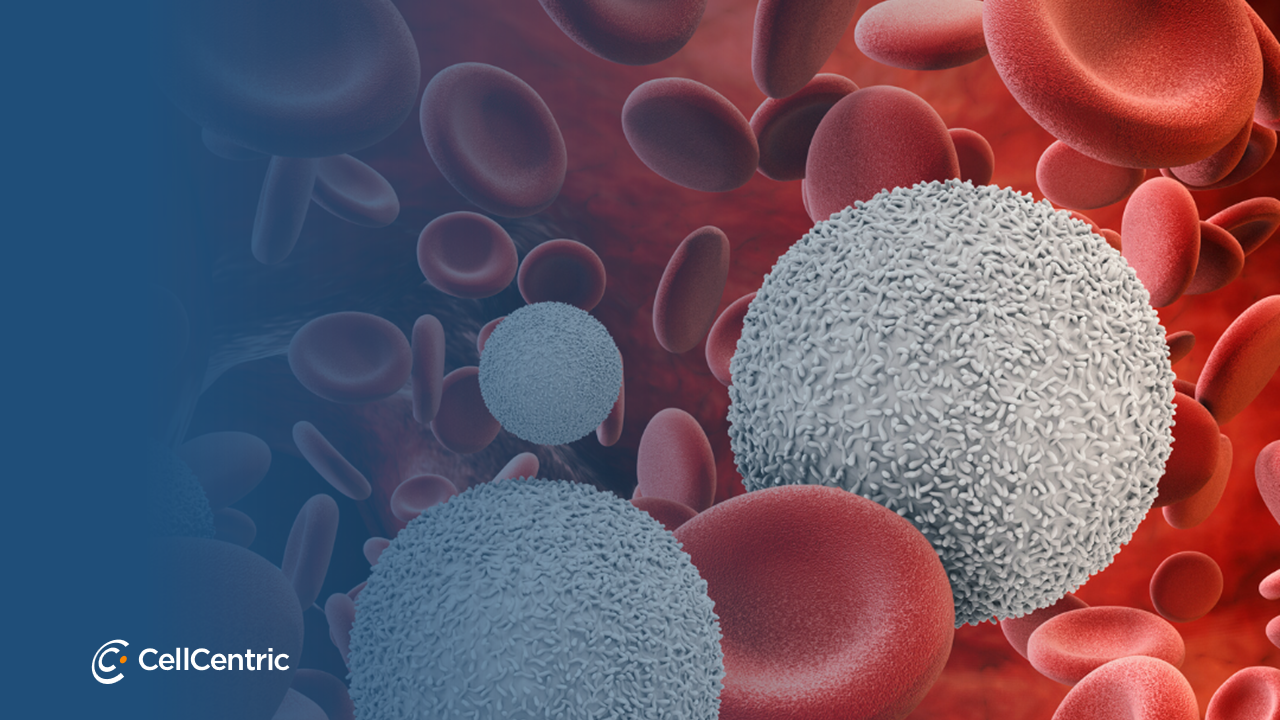- Results show promising early efficacy of 67% patients (ORR) treated at 35mg doses of inobrodib in combination with pomalidomide (pom) and dexamethasone (dex), in relapsed refractory multiple myeloma patients who have exhausted other treatment options.
- Inobrodib is the first in a new class of drug, an oral agent targeting p300/CBP to treat specific cancer types.
- It is well tolerated as monotherapy and the initial safety profile in combination with pom + dex is also manageable.
Cambridge, UK, 11th December 2023: CellCentric has announced new clinical data for its oral drug inobrodib at the American Society for Hematology annual meeting (ASH) in San Diego. The data shows over 70% responses (>=MR by IMWG criteria) in last line multiple myeloma patients treated with inobrodib in combination with pom + dex.
The results follow a recent publication in Cancer Cell, which describes the novel mechanism of action of inobrodib. The drug disrupts the action of p300/CBP at regulatory elements controlling key cancer genes. Inobrodib impacts the expression of IRF4 and MYC, two potent oncogenes that drive multiple myeloma. The mechanism is clearly differentiated from that of other commonly used drugs, and it has also been proven to be synergistic to agents such as the IMiDs. As now shown clinically, patients refractory to pomalidomide become responsive to inobrodib combined with pom + dex.
The new data is presented from a part of the multi-centre phase I/IIa clinical trial (NCT04068597). The study has involved heavily pre-treated patients who are mostly triple class refractory, with a median of five lines of prior therapy. Data are shared at ASH from two combination cohorts at doses of inobrodib at 25mg or 35mg twice daily on a 4 days on / 3 days off intermittent schedule, with standard dosing of pom + dex in 28-day cycles.
The results showed inobrodib has a manageable safety profile. All patients demonstrated some signs of clinical activity, with rapid responses: 72% ≥MR by IMWG criteria in both cohorts, and 67% ORR in the 35mg cohort. A significant number of patients across both dosing cohorts remain on treatment after six months.
CellCentric has previously reported initial monotherapy tolerability and efficacy data, at ASH 2022.
“We are pleased that clinical activity of this combination is so encouraging in last line patients, confirming the potential of this new approach.” said Tomasz Knurowski, Chief Medical Officer at CellCentric. “Further evaluation is underway, but there are clear signs that targeting p300/CBP to treat haematological malignancies, including myeloma, has potential to address unmet medical need.”
Dr Emma Searle, Consultant Haematologist at The Christie NHS Foundation Trust, who has overseen the care of many of the patients on the clinical trial, added: “The results show promising efficacy data in relapsing remitting multiple myeloma patients who have exhausted standard-of-care therapies, both as a monotherapy and in combination with pom + dex. Further trials continue to refine dosing and expand the cohort.”
About inobrodib
Inobrodib is a new type of treatment for people with cancer. Delivered as an oral capsule, it is easy for patients to take and can be used at home without the need for intensive monitoring. As it has a good safety profile for a drug in this setting, it may be used by those who are unable to tolerate other treatments, including the elderly and frail.
This potentially represents a significant benefit over existing treatment options as it enables a wider range of patients to be treated, including those who want to be treated closer to home. Being an oral capsule, it has the potential to present a lower overall burden on the healthcare system as compared to more complex therapies, such as cell-based therapies. In June 2023, CellCentric was granted orphan drug and fast track designation status from the FDA for inobrodib.
About CellCentric
CellCentric is an innovative UK-based biotechnology company with offices in Cambridge and Manchester. The company was spun out from the University of Cambridge, by pioneering developmental biologist Professor Azim Surani FRS, CBE, who wanted to further explore the potential of epigenetics to deliver new treatments. From its origins, CellCentric built a network of research and evaluation relationships with over 25 leading academic research groups worldwide.
CellCentric’s research evolved to focus on twin acetyl transferase proteins, p300 and CBP, that act as transcription co-activation factors, and that drive the expression of genes important in cancer progression. CellCentric has investigated over 50 epigenetic-related targets as new ways to treat disease, and specifically cancer. The company actively pursued multiple drug discovery programmes before focusing on p300/CBP inhibition and inobrodib.
About The Christie
The Christie is a specialist cancer centre in Manchester and has more than 120 years of expertise in cancer care, research and education. It is one of Europe’s leading cancer centres, treating over 60,000 patients a year.
The Christie is one of Europe’s largest experimental cancer medicine centres and an international leader in research and development with around 650 clinical studies ongoing at any one time. Visit www.christie.nhs.uk to find out more or follow The Christie on social media @TheChristieNHS




